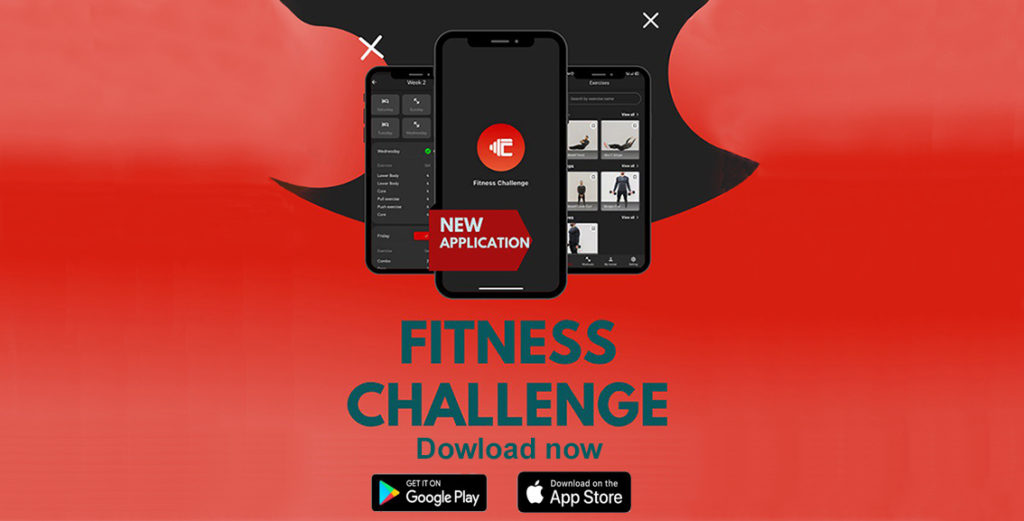ANTI-DOPING Q&A
QUESTIONS & ANSWERS ABOUT ANTI-DOPING
1 Question: I am ultimately responsible for what I swallow, inject or apply to my body. Answer: True
Explanation: All athletes need to be proactive in asking questions so they don’t jeopardize their sporting careers. If you have a question – ASK! If you cannot be 100% sure of the ingredients or don’t know the status of a substance – DON’T TAKE IT!
2 Question: Only athletes competing at the Olympics, Paralympics and World Championships are subject to doping control.
Answer: False
Explanation: Many countries and international federations have anti-doping programs. This means that if you are part of a national team, you may be tested either during a competition or outside competition at your home or training venue.
3 Question: WADA stands for: World Anti-Doping Administration, World Anti-Doping Agency?
Answer: World Anti-Doping Agency
Explanation: The mission of World Anti-Doping Agency (WADA) is to promote, coordinate and monitor at the international level the fight against doping in sport in all forms.
4 Question: If a medication is okay to use in my home country, I can safely use the same brand purchased overseas.
Answer: False
Explanation: Some medications have slightly different ingredients when bought in different countries. In some cases, these could be prohibited substances. You must check the ingredients carefully and seek advice from your doctor, if you are unsure.
5 Question: The maximum number of times an athlete can be tested each year is?
a. 2
b. 5
c. 20
d. Unlimited
Answer: d. Unlimited
Explanation: There is no limit to the number of times an athlete can be tested each year including in-competition, out of competition, random and target testing.
6 Question: Analysis of urine for detection of prohibited substances or methods in sport can be performed by ANY laboratory with the necessary equipment?
Answer: False
Explanation: Analysis of urine for detection of prohibited substances or methods in sport is only performed at those laboratories which have met the high standards of WADA and have been granted accredited status.
7 Question: If a nutritional supplement is bought from a pharmacy (over-the-counter), it is definitely permitted in sport.
Answer: False
Explanation: Taking supplements and/or any substance is at your own risk. Many supplements contain prohibited substances. Because the supplement industry is not regulated in many countries, it is important to be completely confident you know what is inside the product. An alternative to using supplements is to adapt your nutritional program.
8 Question: When I am sick, I can be excused for taking ANY medicine to help me get well?
Answer: False
Explanation: If you have a cold, flu or hay fever DO NOT take any medication or substance without first being sure it doesn’t contain a prohibited substance. This includes both over-the-counter substances and medication from your doctor. Remember a positive test is a positive test.
9 Question: A coach or doctor assisting or encouraging an athlete to take prohibited substances can be sanctioned if that athlete tests positive?
Answer: True
Explanation: Encouraging or assisting athletes to use prohibited substances or methods is considered a serious doping violation and a sanction will be imposed under the World Anti-Doping Code.
10 Question: Doping Control Officers must inform athletes they will be drug tested a few hours before their arrival?
Answer: False
Explanation: Wherever possible, testing will be no-advance-notice. This means that Doping Control Officers (DCOs) can conduct testing at any time, and in any place. However, it is expected that DCOs will use their discretion so as not to cause unnecessary inconvenience to athletes.
11 Question: Once the sample is collected and sealed and the paperwork is complete, any attempt to open, contaminate or otherwise tamper with the sample will be obvious.
Answer: True
Explanation: An athlete should feel confident that their sample cannot be tampered with. In addition, the laboratory will report any suspicions it has about the integrity of the sample before analysis.
12 Question: An athlete can refuse to submit to doping control if he/she is too busy? Answer: False
Explanation: Refusing to submit to doping control can carry the same sanction as a positive test. If an athlete refuses to take a test when notified, he/she must provide an explanation for the refusal on the relevant form and inform his/her governing body as soon as possible.
13 Question: When requested, my coach can accompany me to the Doping Control Station?
Answer: True
Explanation: Every athlete has the right to have a representative accompany them to the Doping Control Station.
14 Question: I have to use the sample collection equipment I have chosen, even if I think it might have been tampered with or it looks dirty.
Answer: False
Explanation: You should be given a selection of sealed sample collection equipment to choose from. If you are not happy about the testing kit you originally chose, you should ask for another one and your request may be granted.
15 Question: I should tell my doctor that as an athlete I am subject to doping controls and should not use prohibited substances.
Answer: True
Explanation: It is important that your doctor knows you should be given alternative medications to those on the prohibited list. If this is not possible, you will need to ask for a Therapeutic Use Exemption (TUE) through your International Federation or National Anti-Doping Organization before you can use the medication. Procedures exist to handle emergency cases which your doctor should also be aware of.
16 Question: If you are not able to provide the required amount of urine you will be asked to give a blood test in addition to your urine.
Answer: False
Explanation: If you are unable to provide the required amount of urine, your partial sample will be sealed and recorded, and when ready, you will need to provide further samples until you have the required volume.
17 Question: It is always okay to accept medication from someone you trust, even if you don’t know what the medication contains.
Answer: False
Explanation: Athletes should always know what they are putting into their system. Taking medication without knowing what it contains could result in a positive drug test and could also be dangerous to your health.
18 Question: If a Doping Control Officer comes to your home to conduct an out-of-competition test, it is okay for you to leave the room alone to make a cup of coffee?
Answer: False
Explanation: If you need to leave the room, tell the Doping Control Officer who will go with you. It is important that you protect the integrity of your sample by staying in full view of the Doping Control Officer at all times until the test is complete.
19 Question: If I have had an out of competition test already this week, it will be a few weeks before my next test.
Answer: False
Explanation: It may be a few weeks before your next test, or it could be a few days, even hours. There are benefits to conducting more than one test within a short time span since it stops cheats feeling they are ‘safe’ to continue cheating.
20 Question: If the Doping Control Officer (DCO) does not have any identification, I can refuse to be tested.
Answer: True
Explanation: The DCO must be able to demonstrate that they have the authority to conduct a test, and that they belong to an authorized sample collection authority. If they do not, explain this on the relevant form, sign it, keep your copy and contact your Federation immediately.
21 Question: The person who receives my sample at the laboratory knows who I am. Answer: False
Explanation: The documentation which accompanies your sample to the laboratory does not reveal your identity. The only information the lab receives is the sport/event/gender/Federation and the date of the test.
22 Question: The “TUE” program provides athletes the opportunity to request treatment of a serious medical condition by using a prohibited substance. TUE stands for:
Answer: Therapeutic Use Exemption
Explanation: International level athletes should submit their Therapeutic Use Exemption (TUE) request to their International Federation and national level athletes should submit their forms to their National Anti-Doping Agency. TUEs are granted for a specific medication with a defined dosage and for a specific period of time.
23 Question: The Prohibited List identifies what substances and methods are prohibited in-competition and out-of-competition.
Answer: True
Explanation: The Prohibited List is reviewed annually by a panel of international experts and an updated version enters into force on 1 January of each year. All athletes should ensure they are aware of the most up-to-date information related to the List which is available on the WADA Web site – www.wada-ama.org.
24 Question: Even if I am injured and not competing, I still need to submit my whereabouts information to the relevant sporting bodies in case they need to locate me for a drug test.
Answer: True
Explanation: As an athlete, you must submit your whereabouts information even if you are not competing due to an injury or illness so the anti-doping organization can locate you at any time and at any place.
25 Question: I can be drug tested during a competition, even if I didn’t compete. Answer: True
Explanation: If you are named as a member of a team, you may be included in selection for doping control, whether you actually competed or not.
26 Question: If you test positive for a prohibited substance, you have the right to:
a. request the B sample be analyzed
b. attend or to be represented for the opening and analysis of the B sample c. request copies of the laboratory documentation package
c. All of the above
Answer: d. All of the above
Explanation: The World Anti-Doping Code aims to ensure that athletes’ rights are respected.
27 Question: How often is the Prohibited List updated?
a. Once a month
b. Once a year, at least
c. Before every Olympic and Paralympic Games d. It is never updated
Answer: b. Once a year, at least
Explanation: The Prohibited List is reviewed annually by a panel of international experts and an updated version enters into force on 1 January of each year. All athletes should ensure they are aware of the most up-to-date information related to the List which is available on the WADA Web site – www.wada-ama.org.
28 Question: When I am notified for doping control, do I need to report immediately to the Doping Control Station?
a. Yes
b. No– I have one hour
c. I can report when I am ready
d. No– I have 24 hours
Answer: a. Yes
Explanation: When you are notified by a Doping Control Officer (DCO) or Chaperone about your selection for doping control, you have to report to the Doping Control Station immediately, unless there are valid reasons for a delay. Even with a valid delay, you MUST remain within direct observation of the DCO and/or Chaperone at all times until the sample has been collected.
29 Question: If I am banned in my sport, I can compete in another sport.
Answer: False
Explanation: If you are sanctioned as a result of committing an Anti-Doping Rule Violation (ADRV), you cannot participate in competitions or activities in any level of sport during your period of ineligibility.
30 Question: If I test positive in my country, I can compete for another country.
Answer: False
Explanation: If you have committed an Anti-Doping Rule Violation (ADRV) in your country, your ADRV record will be recognized by all other Signatories of the World Anti-Doping Code. Therefore, during your period of ineligibility, you will not be able to compete for another country.
31 Question: Can I be found to have committed an Anti-Doping Rule Violation (ADRV) if I consume a supplement that is contaminated with a prohibited substance?
Answer: Yes
Explanation: Under the Strict Liability Principle, an athlete is responsible for any prohibited substance that is found in his/her body. A potential Anti-Doping Rule Violation (ADRV) will occur whether or not you intended to use a prohibited substance or to your level of precaution! Always be careful with any substance, food (especially meat in certain countries), or supplement you are consuming.
32 Question: Who determines whether your application for a Therapeutic Use Exemption (TUE), allowing you to use a prohibited substance for medical necessity, is approved or denied?
a. A committee of athletes
b. A group of professionals working for the national/international sports federation
c. A committee of medical experts
d. The president of the national or international sports federation
Answer: c. A committee of medical experts
Explanation: After submitting a TUE to your relevant Anti-Doping Organization (IF or NADO and/or Major Event Organization, where applicable), it will have your request appropriately dealt with by a panel of independent physicians called Therapeutic Use Exemption Committee (TUEC). IFBB Its TUECs, is then responsible for granting or declining your application.
33 Question: If I want to respect my sport and be the best athlete I can be, I need to:
a. Acknowledge that winning is what is most important
b. Do what I can to get an advantage
c. Know that a failure means I did something wrong
d. None of the above
Answer: d. None of the above
Explanation: Hard-work, dedication, and learning from set-backs are essential to become the best athlete of a sport. However, winning at all costs with no respect for health, fellow competitors, or the rules goes against the spirit of sport.
34 Question: Athletes who dope are cheating every athlete’s right to compete in clean sport.
Answer: True
Explanation: When an athlete cheats, they take themselves out of the game, stop competing in the spirit of sport, and there is no longer a fair contest. Also, violating anti-doping rules is the same as violating competition rules, which all athletes accept as a condition to participate and compete fairly.
35 Question: Who is authorized to carry out the blood sample collection?
a. A qualified Blood Collection Officer(BCO)
b. A qualified Doping Control Officer(DCO)
c. A qualified Chaperone
d. All of the above
Answer: a. A qualified Blood Collection Officer(BCO)
Explanation: A Blood Collection Officer (BCO) is an official who is qualified and has been authorized by the Anti-Doping Organization (ADO) to collect a blood sample from an athlete.
36 Question: After I give a sample (blood and/or urine), for how long can it be stored and re-analyzed?
a. An indefinite period
b. 10 years
c. 2 years
d. It cannot be stored
Answer: b. 10 years
Explanation: All Samples may be stored for up to ten years and re-analyzed at any time during this period, which means previously undetectable substances may be found later on and athletes may be sanctioned and have their results disqualified well beyond the original testing date.
37 Question: A positive test is the only way an athlete can be sanctioned.
Answer: False
Explanation: Presence of a prohibited substance in an athlete’s Sample is only 1 of 11 Anti-Doping Rule Violations (ADRVs). Refusing or failing to submit to Sample Collection, Possession of a Prohibited Substance, Complicity, and Prohibited Association are some of the other ADRVs that an athlete can be sanctioned for.
38 Question: I can be sanctioned for associating with a coach, physician or other such support personnel who are serving a period of ineligibility due to an Anti-Doping Rule Violation (ADRV).
Answer: True
Explanation: Prohibited Association is an Anti-Doping Rule Violation (ADRV) that athletes can be sanctioned for.
39 Question: If I know a supplement has been through a quality control process, I can be guaranteed that it does not contain any substances on the prohibited list.
Answer: False
Explanation: There is no way to guarantee that supplements are free of prohibited substances as this industry is not regulated. No organization can guarantee the safety of any dietary supplement or its content. Eating a balanced diet of natural, whole foods is the best way to improve athletic performance.
Note: Please be advised that this information is subject to change at any time. Always check with IFBB or the National Anti-Doping Organization from your country for the most up-to-date anti-doping regulation.




